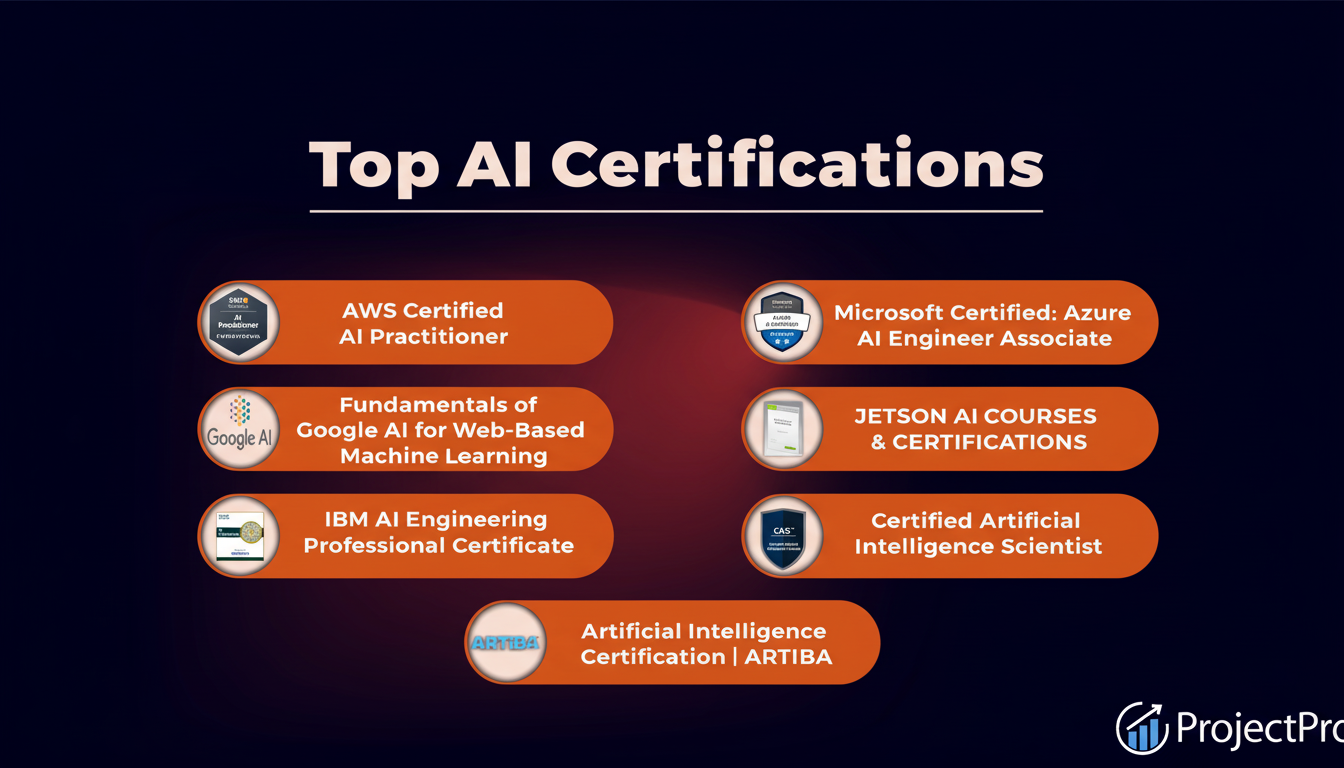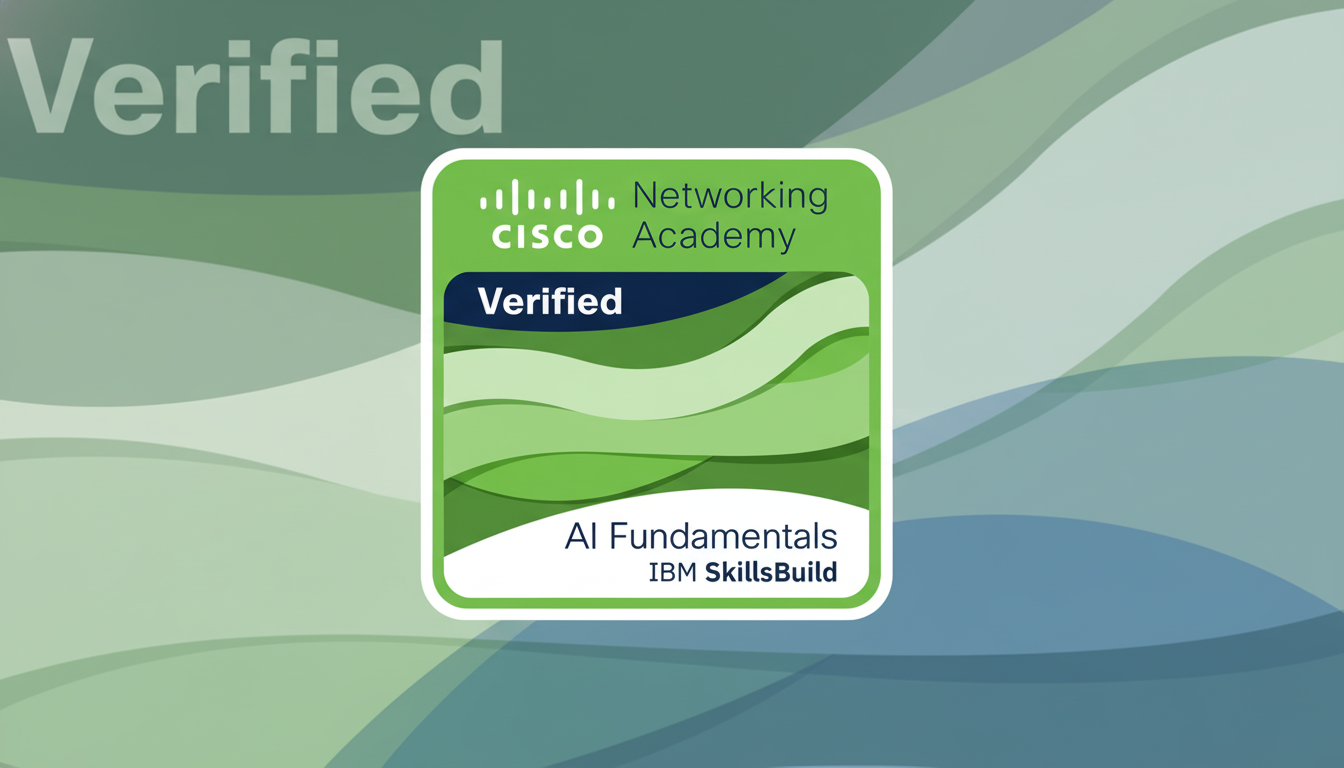AI literacy is no longer a bonus skill; it is table stakes. After completing dozens of free AI courses and chasing the handful that also provide verifiable certificates, I’ve narrowed the field to the programs that deliver real skills, credible proof of learning, and zero tuition. Here’s what actually stood out in testing and how to stack these credentials into a career-ready portfolio.
How I Tested These Free AI Programs For This List
I prioritized courses that are fully free to complete, include graded assessments or hands-on labs, and provide a shareable credential without a paywall. I finished at least one credential per provider, assessed instructor quality, project depth, and employer recognition, and tracked time-to-completion. When useful extras required payment (like optional proctored exams), I noted alternatives that remain free.

Top Free Certificates Worth Earning Right Now
- IBM SkillsBuild AI Fundamentals: A six-course path culminating in an official digital credential, issued via a recognized badge platform. The ethics module is unusually strong, with case-based scenarios that mirror real enterprise dilemmas. I completed the full sequence over a weekend; it’s approachable for non-coders but still relevant to technical teams, with examples anchored in Watsonx workflows.
- Google Cloud Skills Boost Generative AI Learning Path: A set of free modules with interactive labs that guide you through prompt design, embeddings, and model selection using Vertex AI. Skill badges verify completion and appear on your profile instantly. I appreciated that the labs simulate production choices, from grounding models to monitoring outputs, without locking you into paid services.
- DeepLearning.AI Short Courses: These micro-courses (including ChatGPT Prompt Engineering for Developers and Building Systems with the ChatGPT API) are free and conclude with a downloadable certificate. Expect tight, practitioner-style lessons with runnable notebooks. I completed two in an afternoon and came away with working code snippets I used the same day.
- NVIDIA Deep Learning Institute Foundations of Generative AI: Self-paced and free, with a certificate of completion. It clarifies tokenization, attention, and inference trade-offs through guided demos. I liked the practical framing around latency and cost controls—useful if you’re preparing to justify model choices to a product or finance lead.
- Elements of AI by the University of Helsinki and Reaktor: Still one of the best no-barrier introductions. The certificate requires passing interactive exercises, and the curriculum balances intuition with enough math to build genuine understanding. I recommend this to managers who need fluency without code.
Free Courses That Build AI Skills Fast With Labs
- Microsoft Learn AI Tracks: Free, modular lessons on responsible AI, Copilot, and Azure OpenAI Service. You earn profile-visible achievements while completing sandbox exercises. I used the responsible AI modules to stress-test prompts against fairness and safety guidelines before deploying an internal demo.
- AWS Skill Builder and AWS Educate Generative AI Plans: Developer and business paths cover Bedrock, SageMaker, and retrieval-augmented generation. The hands-on projects are concise; I stood up a text-to-image pipeline and a lightweight RAG prototype without spinning up paid infrastructure. Some paths award completion badges you can attach to your profile.
- Kaggle Micro-Courses: Fully free, with completion statements and practical notebooks. The LLM, ML, and Python tracks are perfect for daily reps; I used the prompt engineering exercises to improve a support bot’s retrieval accuracy. The instant, in-browser notebooks make experimentation frictionless.
- OpenSSF and Linux Foundation Secure AI-Assisted Development: A free course that tackles prompt injection, data leakage, and insecure code generation. I incorporated its checklist into my code reviews and immediately caught an unsafe dependency update produced by an AI assistant. A verifiable completion badge is available.
- fast.ai Practical Deep Learning for Coders: No formal certificate, but the projects are portfolio gold. If your goal is to ship models, this is a rigorous, code-first path that rewards persistence; I fine-tuned a vision model here and repurposed the training loop in a client prototype.
What Employers Actually Value In AI Portfolios
Hiring managers increasingly scan for AI fluency in job posts, according to LinkedIn’s workforce research, but badges alone won’t seal the deal. The differentiator is evidence: a notebook, a repo, a Loom walk-through showing how you evaluated models, costs, and safety trade-offs. The World Economic Forum has warned that core skills are shifting rapidly; the signal you control is publishing your work alongside recognizable credentials.

A One-Month Plan To Stack Free Credentials
- Week 1: Finish Elements of AI or IBM SkillsBuild AI Fundamentals and post the credential. Write a short reflection highlighting one ethical risk you’ll monitor in future projects.
- Week 2: Complete Google Cloud’s generative AI skill badges and deploy a basic Vertex AI demo. Capture screenshots and document latency, cost controls, and grounding techniques.
- Week 3: Take DeepLearning.AI’s prompt engineering short course and build a small tool that chains prompts with programmatic checks. Publish the code and a usage GIF.
- Week 4: Do OpenSSF’s secure AI-assisted development course, then audit your demo for prompt injection and data leakage. Add a security section to your README and share the before-and-after diffs.
Final Take: Free AI Courses That Truly Deliver
Free AI education is better—and more verifiable—than ever. The standouts above combine rigorous content, practical labs, and credentials you can actually share. I completed them end to end; they’re efficient, credible, and stack neatly into a portfolio that hiring teams recognize. Start with one, publish your work, and let the evidence compound.

